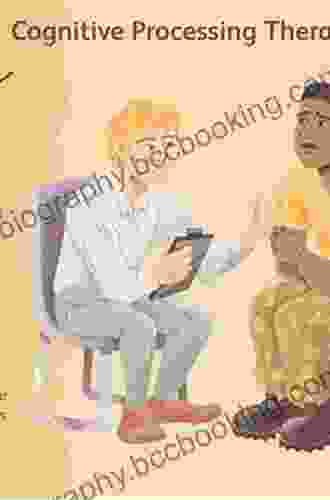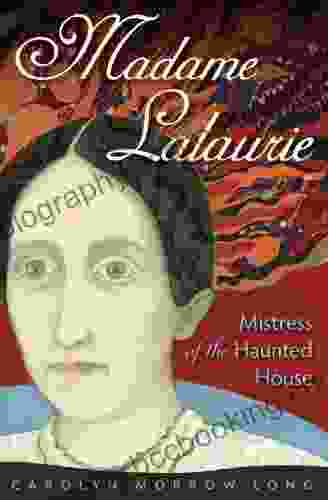Cognitive Processing Therapy for PTSD: The Ultimate Guide to Recovery

What is Cognitive Processing Therapy (CPT)?
Cognitive Processing Therapy (CPT) is a type of psychotherapy that helps people to understand and change the negative thoughts and beliefs that are contributing to their PTSD symptoms. CPT is based on the idea that our thoughts, feelings, and behaviors are all connected, and that by changing our thoughts, we can change our feelings and behaviors.
4.8 out of 5
| Language | : | English |
| File size | : | 5803 KB |
| Screen Reader | : | Supported |
| Print length | : | 312 pages |
CPT is a structured therapy that typically consists of 12-16 sessions. During these sessions, you will work with a therapist to identify the negative thoughts and beliefs that are contributing to your PTSD symptoms. Once you have identified these thoughts and beliefs, you will learn how to challenge them and replace them with more positive and realistic ones.
CPT has been shown to be effective in reducing PTSD symptoms and improving functioning in people who have experienced trauma. In one study, CPT was found to be more effective than other types of therapy in reducing PTSD symptoms. Additionally, CPT has been shown to be effective in reducing depression, anxiety, and other mental health problems that are often associated with PTSD.
Who is CPT for?
CPT is for people who have experienced trauma and are struggling with PTSD symptoms. PTSD can develop after experiencing a traumatic event, such as a natural disaster, a car accident, or a sexual assault. PTSD symptoms can include:
* Flashbacks * Nightmares * Avoidance of reminders of the trauma * Negative thoughts and beliefs about oneself or the world * Difficulty concentrating * Irritability and anger * Difficulty sleeping
How does CPT work?
CPT works by helping people to understand and change the negative thoughts and beliefs that are contributing to their PTSD symptoms. CPT is a structured therapy that typically consists of 12-16 sessions. During these sessions, you will work with a therapist to identify the negative thoughts and beliefs that are contributing to your PTSD symptoms. Once you have identified these thoughts and beliefs, you will learn how to challenge them and replace them with more positive and realistic ones.
CPT is a collaborative therapy, which means that you and your therapist will work together to develop a treatment plan that meets your individual needs. Your therapist will provide you with support and guidance throughout the therapy process.
What are the benefits of CPT?
CPT has been shown to be effective in reducing PTSD symptoms and improving functioning in people who have experienced trauma. CPT has been shown to be more effective than other types of therapy in reducing PTSD symptoms. Additionally, CPT has been shown to be effective in reducing depression, anxiety, and other mental health problems that are often associated with PTSD.
Some of the benefits of CPT include:
* Reduced PTSD symptoms * Improved functioning * Reduced depression and anxiety * Improved relationships * Increased self-esteem
How do I find a therapist who offers CPT?
If you are interested in CPT, you can talk to your doctor or mental health professional. They can help you find a therapist who offers CPT. You can also search for therapists in your area who offer CPT on the website of the International Society for Traumatic Stress Studies (ISTSS).
CPT is a safe and effective therapy for people who have experienced trauma and are struggling with PTSD symptoms. CPT can help you to understand and change the negative thoughts and beliefs that are contributing to your PTSD symptoms. CPT can also help you to improve your functioning and live a more fulfilling life.
If you are interested in CPT, please talk to your doctor or mental health professional. They can help you find a therapist who offers CPT.
4.8 out of 5
| Language | : | English |
| File size | : | 5803 KB |
| Screen Reader | : | Supported |
| Print length | : | 312 pages |
Do you want to contribute by writing guest posts on this blog?
Please contact us and send us a resume of previous articles that you have written.
 Book
Book Novel
Novel Page
Page Chapter
Chapter Text
Text Story
Story Genre
Genre Reader
Reader Library
Library Paperback
Paperback E-book
E-book Magazine
Magazine Newspaper
Newspaper Paragraph
Paragraph Sentence
Sentence Bookmark
Bookmark Shelf
Shelf Glossary
Glossary Bibliography
Bibliography Foreword
Foreword Preface
Preface Synopsis
Synopsis Annotation
Annotation Footnote
Footnote Manuscript
Manuscript Scroll
Scroll Codex
Codex Tome
Tome Bestseller
Bestseller Classics
Classics Library card
Library card Narrative
Narrative Biography
Biography Autobiography
Autobiography Memoir
Memoir Reference
Reference Encyclopedia
Encyclopedia Brian Lumley
Brian Lumley Bruce Kirkby
Bruce Kirkby Carolyn Henry
Carolyn Henry Catherine Belsey
Catherine Belsey Caroline Scott
Caroline Scott Caitrin Lynch
Caitrin Lynch Brent Garrison
Brent Garrison Bruce Dowbiggin
Bruce Dowbiggin Carna Zacharias Miller
Carna Zacharias Miller Carter Smith
Carter Smith Carolyn Ketchum
Carolyn Ketchum Bruno Rocha
Bruno Rocha Brennan Barnard
Brennan Barnard Carl Oberleitner
Carl Oberleitner Carolyn Landon
Carolyn Landon Carol Huber Cypher
Carol Huber Cypher Bright Summaries
Bright Summaries Candice M Monson
Candice M Monson Brian Craig
Brian Craig Caren Schnur Neile
Caren Schnur Neile
Light bulbAdvertise smarter! Our strategic ad space ensures maximum exposure. Reserve your spot today!

 Dwight BlairUnveiling the Ultimate Guide to Self-Sufficiency: The Encyclopedia of Country...
Dwight BlairUnveiling the Ultimate Guide to Self-Sufficiency: The Encyclopedia of Country... Fyodor DostoevskyFollow ·19.1k
Fyodor DostoevskyFollow ·19.1k Paul ReedFollow ·11.9k
Paul ReedFollow ·11.9k Rod WardFollow ·8.5k
Rod WardFollow ·8.5k Marc FosterFollow ·13.4k
Marc FosterFollow ·13.4k Edward ReedFollow ·4.7k
Edward ReedFollow ·4.7k Juan RulfoFollow ·3.2k
Juan RulfoFollow ·3.2k Anthony WellsFollow ·19.8k
Anthony WellsFollow ·19.8k Larry ReedFollow ·3.6k
Larry ReedFollow ·3.6k

 Andy Hayes
Andy HayesUnveil the Rich Tapestry of Rural Life: Immerse Yourself...
Step into the enchanting pages of "Still...

 David Mitchell
David MitchellUnlocking the Depths of Cybersecurity: An In-Depth Look...
In the ever-evolving landscape of...

 Seth Hayes
Seth HayesUnlock the Secrets of Watercolor Landscapes: 37 Tools for...
Embark on a...

 Tyler Nelson
Tyler Nelson15 Insightful Answers to Questions on Uterine Fibroid
Uterine fibroids...

 Evan Hayes
Evan HayesAfrica In My Soul: A Literary Odyssey That Captivates the...
In a world where diverse cultures...
4.8 out of 5
| Language | : | English |
| File size | : | 5803 KB |
| Screen Reader | : | Supported |
| Print length | : | 312 pages |












